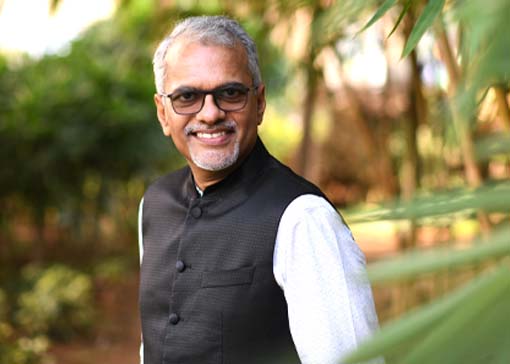
About Relations
The name RELATIONS signifies the basic nature of humankind to be related with oneself, with others, with society, and with the world. This relatedness provides us with the basic stimuli and motivations to live, perform, and achieve at home and at work.
We at RELATIONS function within the primary framework of transactional analysis, making concepts and methods from various psychosocial sciences, like NLP, Gestalt, and System’s Approach, applicable for organisations and for individual trainers, managers, and workers.

Suriyaprakash.C
My quest has been on for the past 20 years and is turning interesting and exciting by the day. I ‘learn something significant from all life experiences—from my accomplishments, mistakes (a whole lot of them!) and all the mundane moments of every day. I believe ‘my actions are my true belongings’ and so endeavour to create small ripples through my actions, hoping they turn into waves in due course of time.
Through these pages, I wish to share my evolving experiences of being, belonging, and becoming!
Mohanraj I.A
Mohanraj I.A., BSc, PGDBA, has international accreditation as Certified Transactional Analyst in the organisations field. He is a Master Practitioner in Neuro Linguistic Programming (NLP) and has over two decades of field experience in personal selling, teaching, industrial training and consultancy. He was visiting faculty at GRD School of Career Studies, and GRD School of Social Science, Coimbatore. He was a Faculty and Voluntary Counsellor of Asha Counselling and Training Services, Coimbatore and Former-Secretary of TA Study Circle of Coimbatore. He was Member, Board of Trustees of the ITAA (2006-2008 & 2011-2014). He was the Regional Examination Coordinator for International Board of Certification. He was the Treasurer (till 2014) and currently Trustee of SAATA.

Why US?
Comprehensive understanding
We help understand human behaviour to improve communication, resolve conflicts, and develop healthy relationships for individuals and organizations.
Evidence-based
We guide you to understand the research behind TA and its effectiveness in improving communication and relationships through an evidence-based approach that has been tested and validated through research.
Practical approach
TA is a practical approach that focuses on improving communication and relationships, and we help you develop these practical skills and techniques that can be applied in your personal and professional lives.
Customized learning
We offer customized learning experiences that are tailored to the needs and interests of each student. We take into account the learning style, background, and goals of each student to create a personalized learning plan.
Versatility
We help you develop a versatile set of skills via TA which can be applied in various fields such as psychotherapy, counselling, education, and business.
In-depth knowledge
We have an in-depth knowledge of the theory, techniques, and applications of TA which can help you develop a comprehensive understanding of the theory and its practical applications.
Our Mission
Our professional goals are to help organisations improve relationships and teamwork; to help organisations create a healthy organisational culture; and to help employees realise autonomy in their personal and work lives.
Since 1995, we have facilitated organisational development through developmental training, coaching, and counselling in India, Bangladesh, Ukraine, and Dubai.
Our Principles
Our guiding principles are the contractual method and open communication.
Contract is a mutual agreement to achieve a well-defined outcome. This ensures all the partners in the learning and change process know in advance, what their stakes are and their commitment to the process.
Open Communication based on the premise that the learner is an expert in his/her own field of work and hence has the right to know and the power to choose.
Our supporting professional principles are
- Starting with the top management
- Involving the entire organisation
- Use of process interventions
- Use of research involving practitioners
- Reinforcing change by developing internal resources within the system
We adhere to a strict code of ethics based on that of the International Transactional Analysis Association.
